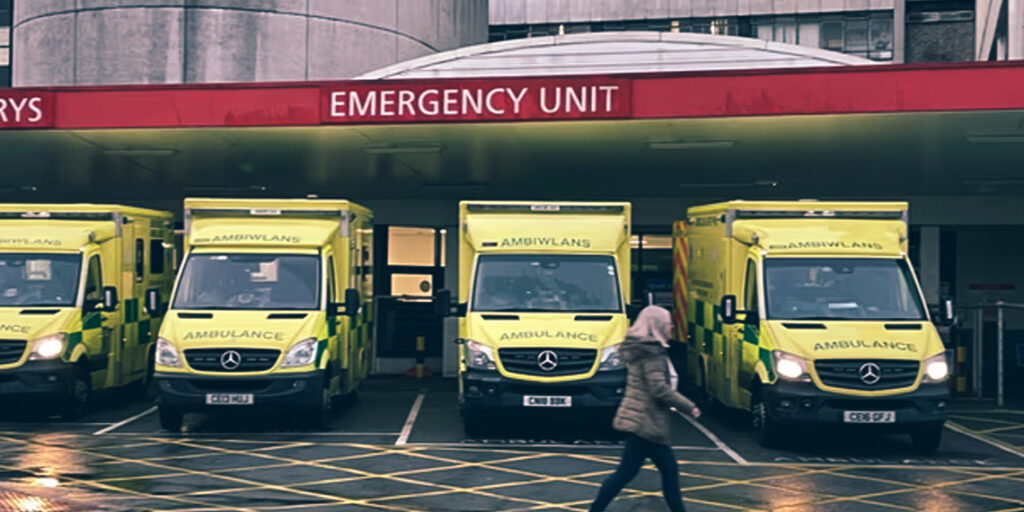The Welsh Ambulance Service has issued a plea for moderation this New Year’s Eve, as the service grapples with a declared “critical incident” due to overwhelming demand.
Chief Executive Jason Killens has urged partygoers to drink responsibly, eat beforehand, and look after their friends to ease the pressure on emergency services.
Killens acknowledged that delays in paramedics reaching patients may have already caused harm, warning that the situation could remain critical into Wednesday.
“The pressure will persist throughout today and into the early hours of the morning as New Year’s celebrations peak,” Killens told the BBC.
He added: “We want people to enjoy themselves, but please drink in moderation. Eating before drinking and ensuring friends are cared for if they overindulge can make a difference.
Communities can also help by only calling 999 for genuine emergencies and using alternative services like 111, pharmacists, or GPs where appropriate.”
Weather and High Demand Compound Pressures
Killens highlighted that worsening weather conditions could exacerbate the crisis. The critical incident was declared Monday evening when approximately 350 emergency calls were queued, and over half of ambulances were stuck outside hospitals, unable to hand over patients.
Apologising to those affected, Killens said: “I want to say sorry to patients who waited far longer than they should have. Unfortunately, some of these delays may have caused harm, despite our efforts to prioritise the most critical cases.”
He described the current situation as one of the worst periods the service has experienced, exacerbated by seasonal flu and respiratory illnesses.
Advice for a Safe New Year’s Eve
The Welsh Ambulance Service has shared safety tips to minimise risk and reduce demand on emergency services:
Drink responsibly: Eat before drinking and alternate alcoholic beverages with non-alcoholic ones.
Plan your journey: Arrange transport home in advance and never drive under the influence.
Avoid high-risk activities: Steer clear of fireworks and bonfires, which can cause burns and exacerbate respiratory issues like asthma.
Surge in Emergency Calls
Even before the critical incident, the service reported a significant rise in calls. Assistant Director of Operations Judith Bryce revealed that life-threatening “red” calls had soared to 1,716 in the past week compared to 1,213 in the same period last year.
The NHS 111 Wales service also saw a substantial increase, answering over 1,200 more calls than the previous year.
As the New Year celebrations approach their peak, the Welsh Ambulance Service’s message is clear: exercise caution, think ahead, and help ease the burden on overstretched emergency services.


